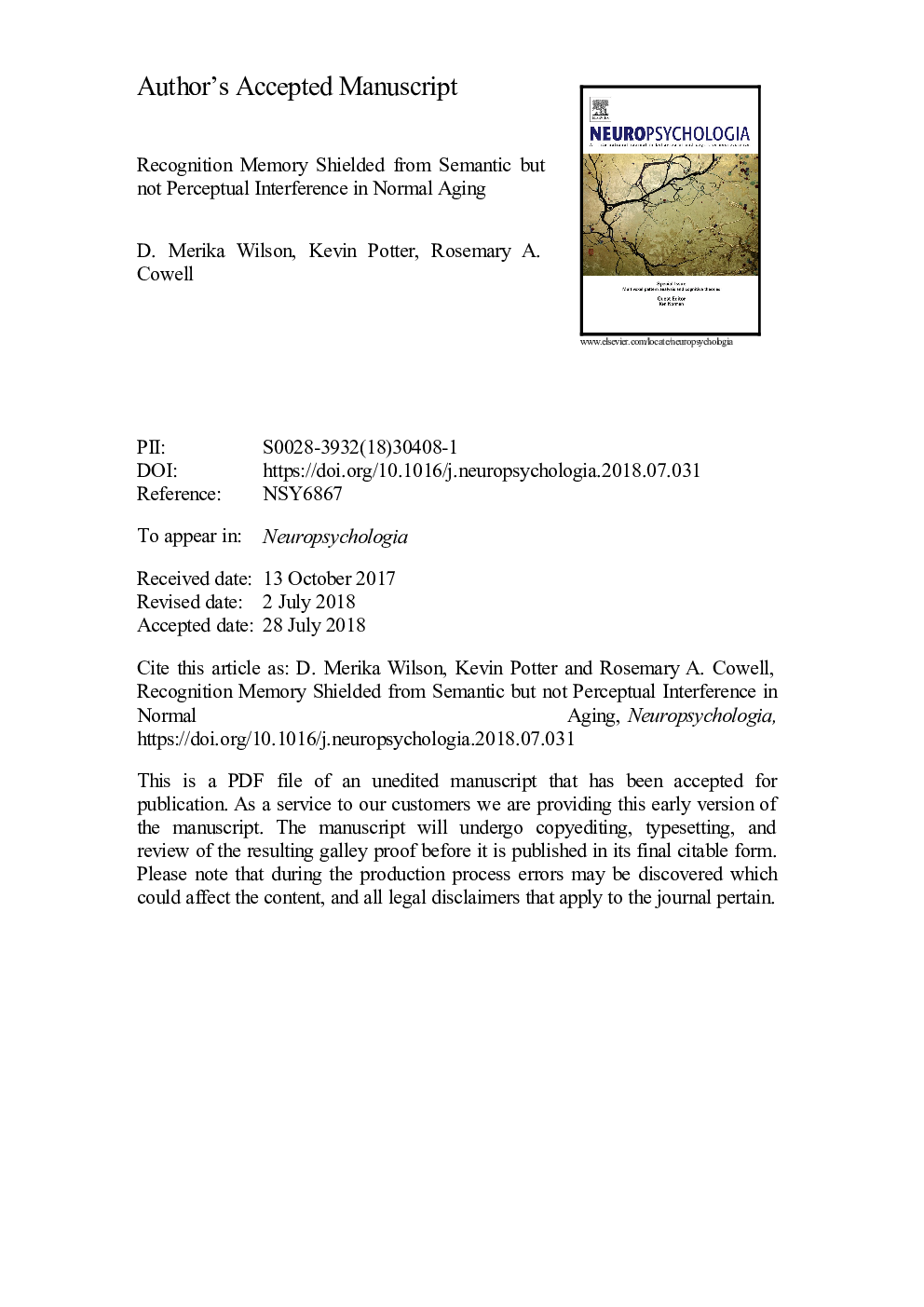| Article ID | Journal | Published Year | Pages | File Type |
|---|---|---|---|---|
| 11004696 | Neuropsychologia | 2018 | 44 Pages |
Abstract
Normal aging impairs long-term declarative memory, and evidence suggests that this impairment may be driven partly by structural or functional changes in the medial temporal lobe (MTL). Theories of MTL memory function therefore make predictions for age-related memory loss. One theory - the Representational-Hierarchical account - makes two specific predictions. First, recognition memory performance in older participants should be impaired by feature-level interference, in which studied items contain many shared, and thus repeatedly appearing, perceptual features. Second, if the interference in a recognition memory task - i.e., the information that repeats across items - resides at a higher level of complexity than simple perceptual features, such as semantic gist, older adults should be less impacted by such interference than young adults. We tested these predictions using the Deese-Roediger-McDermott paradigm, by creating feature-level (i.e., perceptual) interference with phonemically/orthographically related word categories, and higher-level associative interference with semantically related word categories. We manipulated category size in order to compare the effect of less versus more interference (i.e., small versus large category size), which served to (1) avoid potential item confounds arising from systematic differences between words belonging to perceptually- versus semantically-related categories, and (2) ensure that any effect of interference was due to information encoded at study, rather than pre-experimentally. Further, we used signal detection theory (SDT) to interpret our data, rather than examining false alarm (FA) rates in isolation. The dâ² measure derived from SDT avoids contamination of the memory measure by response bias, and lies on an interval scale, allowing memory performance in different conditions to be compared without violating assumptions of the statistical tests. Older participants were relatively more impaired by perceptual interference and less impaired by semantic interference than young adults. This pattern is at odds with many current theories of age-related memory loss, but is in line with the Representational-Hierarchical account.
Related Topics
Life Sciences
Neuroscience
Behavioral Neuroscience
Authors
D. Merika Wilson, Kevin W. Potter, Rosemary A. Cowell,
